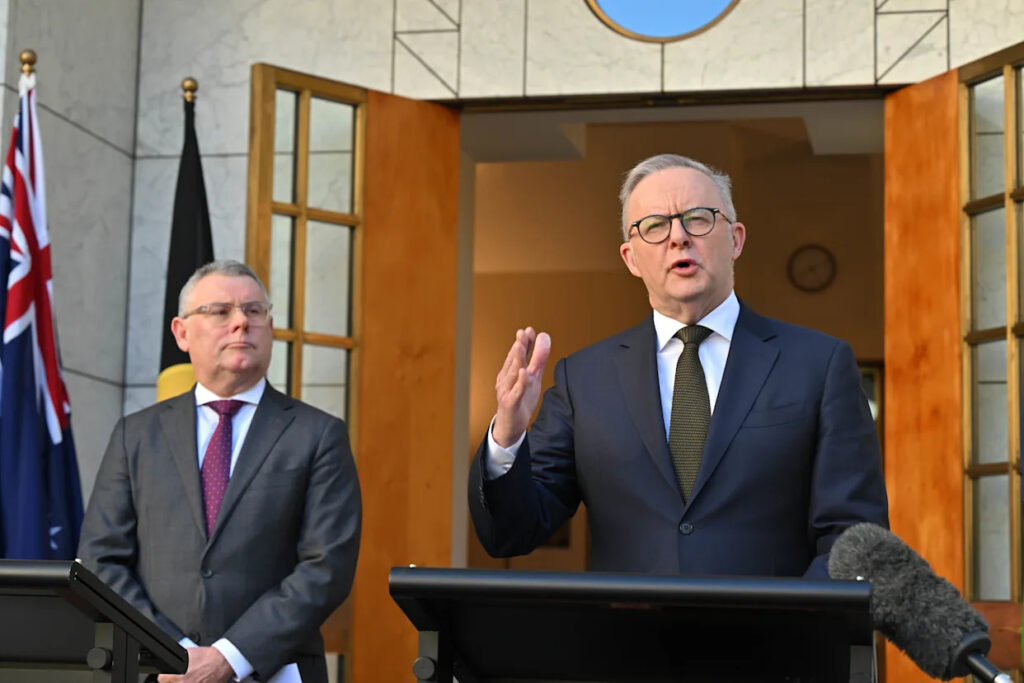
UPDATE: Prime Minister Anthony Albanese has just announced a historic overhaul of the Environment Protection and Biodiversity Conservation (EPBC) Act, marking a significant step in protecting Australia’s environmental future. This landmark legislation, described as a “milestone” by officials, comes after five years of intense debate and negotiation, culminating in a deal with the Greens that was confirmed earlier today.
The newly passed bill aims to amend the EPBC Act, which has been in place for over 25 years. It is intended to provide a comprehensive framework that not only protects the environment for future generations but also enhances business certainty by streamlining decision-making processes for critical projects such as housing, renewable energy, and essential minerals.
In his announcement, Albanese emphasized the dual benefits of the reforms: “We are heralding a new era for the environment and productivity,” he stated, highlighting the urgent need for balanced reforms that can effectively tackle environmental issues while supporting economic growth.
Environment Minister Murray Watt echoed this sentiment, declaring today a “landmark day” for Australia’s approach to environmental conservation. The bill has received mixed reactions from environmental groups. The World Wide Fund For Nature-Australia expressed cautious optimism, stating, “Nature now has a fighting chance.” Conversely, others like the Australian Conservation Foundation welcomed the closure of loopholes that have historically enabled environmental degradation.
Despite the positive feedback, the legislation has faced criticism for not doing enough to combat the ongoing climate crisis. The Climate Council CEO Amanda McKenzie pointed out that while the bill facilitates forest protection and renewable energy projects, it lacks the crucial “climate trigger” that could halt high-polluting projects. “All new coal and gas projects still get a free pass on climate pollution,” McKenzie warned, highlighting a significant gap in the law that could hinder true environmental progress.
The new legislation will also establish a federal Environment Protection Agency with the authority to block developments that could severely impact nature. Importantly, the deal with the Greens will eliminate a controversial exemption that previously allowed state governments to log habitats of endangered species. However, concerns remain regarding the exclusion of fossil fuel projects from expedited assessments, as environmentalists argue that this loophole could undermine the law’s effectiveness.
As Australia grapples with the highest rate of mammalian extinction globally, with over 2,200 species federally listed as threatened, many see this bill as a necessary but insufficient measure. Critics argue that while the bill is a step forward, it falls short of addressing the more significant issues at hand.
In the wake of these changes, environmental advocates like Professor Euan Ritchie from Deakin University stated that while the bill contains some wins, it remains “a long way short” of what is necessary to secure a brighter future for threatened species. Additionally, local organizations such as Environs Kimberley have voiced concerns that the laws do not adequately address emissions from the oil and gas sector, emphasizing that without significant reform, regions like the Kimberley face dire climate projections.
The passage of this bill represents a pivotal moment for Australia, balancing urgent environmental needs with economic considerations. As implementation unfolds, stakeholders will be closely monitoring the government’s commitment to enforcing these reforms and protecting Australia’s unique biodiversity.
WHAT’S NEXT: With the bill now passed, the focus shifts to how effectively the government will implement these changes and whether they can truly protect Australia’s ecosystems while fostering economic growth. Environmental groups and business leaders alike will be watching closely as the new framework begins to take shape.
This groundbreaking legislation is set to reshape Australia’s environmental landscape, but the real test lies ahead: will the government follow through on its promises to protect the nation’s natural heritage?






